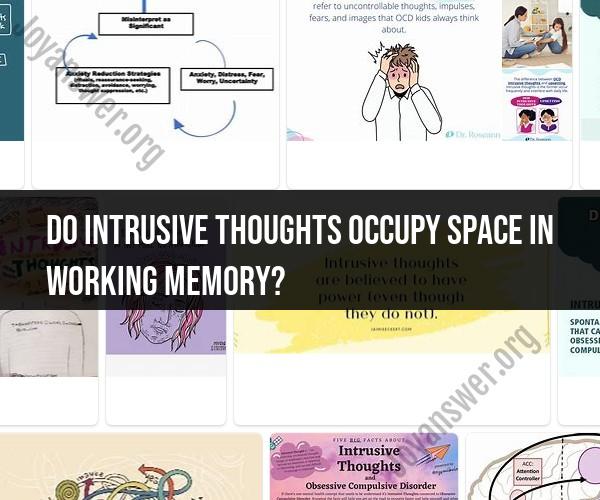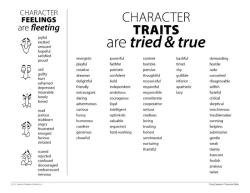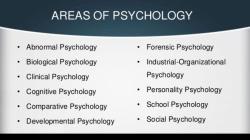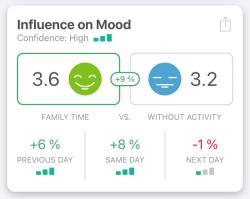Do intrusive thoughts occupy space in working memory?
Intrusive thoughts and working memory are both concepts related to cognitive processes, particularly in the context of psychology and cognitive science. Let's explore each of these concepts and how they are interconnected:
Intrusive Thoughts:Intrusive thoughts are unwanted and involuntary thoughts, images, or ideas that enter a person's mind. These thoughts can be distressing, disturbing, or even violent in nature, and they often go against the individual's desires or values. They are a common human experience and can occur in people with or without mental health conditions. Intrusive thoughts are not indicative of a person's true intentions but rather reflect the brain's natural tendency to generate a wide range of thoughts, some of which can be distressing.
Working Memory:Working memory is a cognitive system responsible for temporarily holding and manipulating information needed for tasks such as problem-solving, decision-making, comprehension, and learning. It is often referred to as the "mental workspace" and is crucial for various cognitive activities. Working memory involves the ability to temporarily store and process information, such as numbers, words, images, or ideas, in real-time while actively using that information for cognitive tasks.
Relationship Between Intrusive Thoughts and Working Memory:Intrusive thoughts can sometimes interfere with working memory processes. When a person experiences distressing intrusive thoughts, their attention and cognitive resources might be diverted away from the task at hand. This can result in reduced working memory capacity and cognitive performance.
For example, if someone is trying to focus on solving a complex problem but is constantly bombarded by intrusive thoughts, their ability to maintain and manipulate relevant information in working memory may be compromised. This can lead to difficulty in concentrating, making decisions, and effectively using working memory resources for the task.
Additionally, individuals who experience frequent and distressing intrusive thoughts might develop a heightened vigilance to monitor and suppress these thoughts. This constant monitoring can consume cognitive resources that could otherwise be allocated to working memory tasks.
It's important to note that the relationship between intrusive thoughts and working memory can be complex and multifaceted, as both concepts are influenced by various cognitive, emotional, and neural processes. If intrusive thoughts are significantly interfering with cognitive functioning or causing distress, individuals may benefit from seeking guidance from mental health professionals who can provide strategies for managing intrusive thoughts and optimizing cognitive processes.












